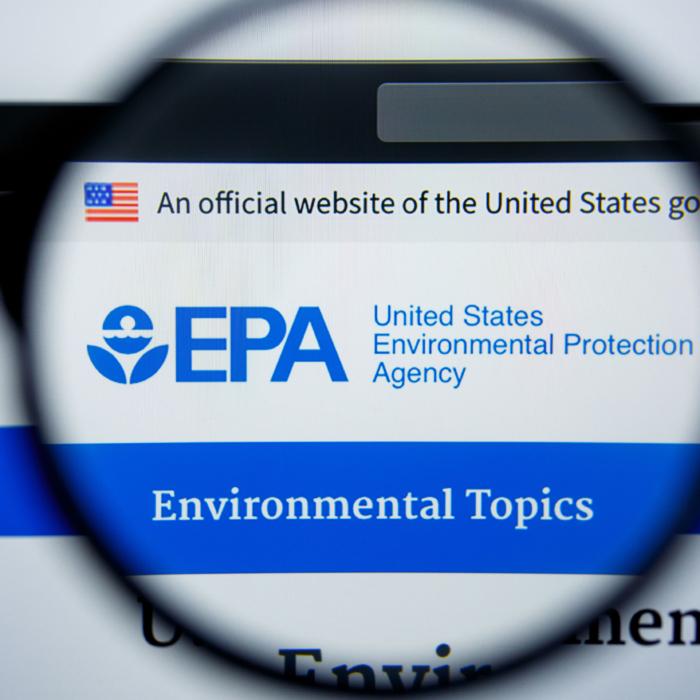The Fluoride Action Network (FAN) sued the Environmental Protection Agency (EPA) under the Toxic Substances Control Act in 2017, and it appears to be nearing its conclusion. Under the act, citizens can challenge the EPA in court when the agency rejects a petition to ban or regulate a toxic substance. The FAN’s suit is the first in the 44-year history of the act to actually get to trial.
In From the Fringes
The lawsuit has brought attention to new research that links fluoride exposure to damaging neurodevelopment effects, concerns that have sometimes been deemed conspiracy theories.“Opposition to fluoridation is now at least 70 years old, but for most of that time has been wrongly dismissed as a fringe and unscientific position,” FAN Executive Director Paul Connett said in a statement.
“The rapidly emerging science on developmental neurotoxicity, especially loss of IQ from early life exposure to fluoride, is a game-changer.”
Much of the most important science on fluoride has come via research funded with millions of dollars by the National Institutes of Health (NIH).
The Background
The lawsuit began after the EPA rejected a petition filed in November 2016 that called on the agency to “protect the public and susceptible subpopulations from the neurotoxic risks of fluoride by banning the addition of fluoridation chemicals to water.”The petition referenced more than 2,500 pages of scientific documentation detailing the risks of water fluoridation to human health, including more than 180 published studies showing that fluoride is linked to reduced IQ and neurotoxic harm.
In response to the denial, the FAN and Food & Water Watch filed the federal lawsuit against the EPA.
A 2nd Phase
Rather than issue a judgment, in August 2020, the court paused all proceedings and instructed the plaintiffs to file a new petition with the EPA including the new scientific studies.They did so in November 2020, but the EPA denied it, citing insufficient scientific evidence.
“Without the final [National Toxicology Program] monograph, reconsidering the petition denial at this time would not be prudent use of EPA’s resources,” the EPA stated.
That monograph is the National Toxicology Program’s report on fluoride toxicity, a document that the government has been reluctant to release.
The EPA’s rejection of the petition means that a second phase of the trial will take place. In explaining his decision to extend the trial, the judge noted the issue of ongoing science on the topic.
“So much has changed since the petition was filed ... two significant series of studies—respective cohort studies—which everybody agrees is the best methodology. Everybody agrees that these were rigorous studies and everybody agrees that these studies would be part of the best available scientific evidence,” said Judge Edward M. Chen of the U.S. District Court for the Northern District of California.
- The systematic review of fluoride’s neurotoxicity from the National Toxicology Program. The program’s report, which isn’t yet finalized, has been a source of controversy in the ongoing lawsuit. The report draft was made public on March 15, 2022, as part of an agreement in the lawsuit, but internal CDC emails obtained through the Freedom of Information Act revealed government interference with its release.
- A Benchmark Dose analysis of fluoride’s neurotoxicity. The analysis titled “A Benchmark Dose Analysis for Maternal Pregnancy Urine-Fluoride and IQ in Children” by Dr. Philippe Grandjean et al. was published on June 8, 2021, in the journal Risk Analysis.
Revelations at Trial
In the initial trial, Grandjean, Dr. Howard Hu, and Dr. Bruce Lanphear were among the noteworthy expert plaintiff witnesses.Grandjean has published about 500 scientific papers, and his study on the neurodevelopmental effects of prenatal mercury exposure was used by the EPA to derive a reference dose for methylmercury.
Hu and Lanphear are known for their seminal research on the impact and neurotoxicity of lead exposure, and both have worked with the EPA in expert advisory roles. Lanphear’s past studies were used by the EPA to set the standards on and regulations of lead.
In his testimony, Hu said his findings were comparable in magnitude to the impact of lead exposure, and in his closing statement said, “It is my opinion to a reasonable degree of scientific certainty, that the results of the element studies support the conclusion that fluoride is a developmental neurotoxicant at levels of internalized exposure seen in water fluoridated communities.”
Similarly, Lanphear closed his testimony by stating, “The collective evidence from prospective cohort studies supports the conclusion that fluoride exposure during early brain development diminishes the intellectual abilities in young children, including at the purportedly ‘optimal’ levels of exposure for caries prevention.”
Grandjean, a physician, environmental epidemiologist, and adjunct professor at the Harvard T.H. Chan School of Public Health, testified on a weight of evidence analysis he did of all best-available research on fluoride and neurotoxicity.
Science for Hire?
According to court documents, instead of the EPA calling in their own agency’s experts on fluoride, they hired the outside consultancy firm Exponent, bringing in their employees, principal scientists Ellen Chang and Joyce Tsuji, as expert witnesses.Per trial documents, Chang criticized the quality of the peer-reviewed NIH-funded studies linking fluoride to lowered IQ. She concluded that “the strength of the observed associations does not provide persuasive evidence.”
According to court documents, Chang and Tsuji testified that they weren’t experts on fluoride prior to their retention for the lawsuit, and Chang had billed the EPA roughly $150,000 for her work.
Federal Depositions
The FAN presented several sworn statements from leaders within the CDC, the EPA, the Food and Drug Administration, and others from prior depositions.Alleged Fraud and Corruption
The FAN has used the lawsuit to also draw attention to what may be systemic issues within the EPA.In the survey, 60.4 percent of employees in the EPA’s Office of Pollution Prevention and Toxics (OPPT), responsible for enforcing the Toxic Substances Control Act, gave a “negative” assessment regarding the honesty and integrity of senior leaders.
The documents also noted that four EPA scientists in the Office of Chemical Safety and Pollution Prevention (which includes the OPPT) have filed complaints alleging “fraud and corruption” related to chemical risk assessments conducted under the act, including the removal of potential health effects without the knowledge or consent of human health assessors.
The survey and documents weren’t specific to the fluoride issue.













